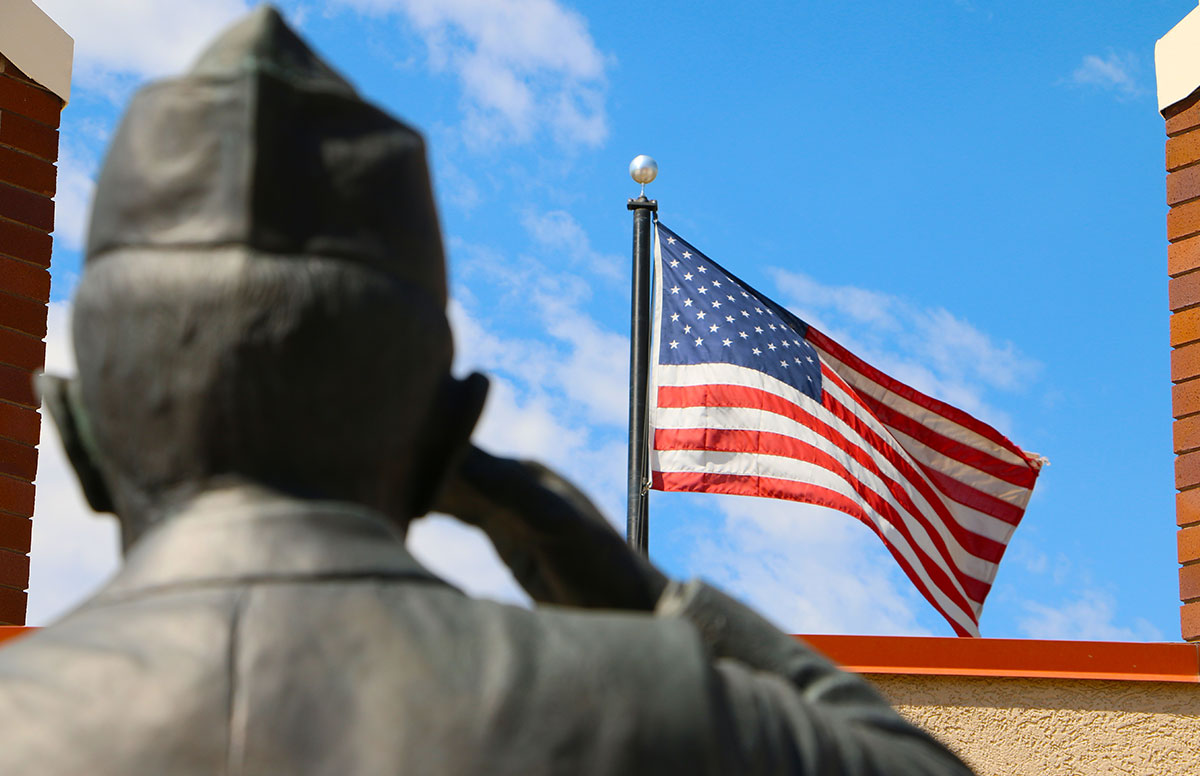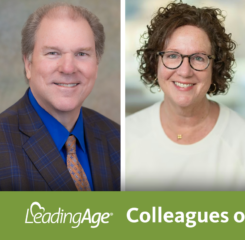April 2019 LeadingAge Catalyst
April 2019 LeadingAge Catalyst
RiverWoods Exeter
Exeter, NH
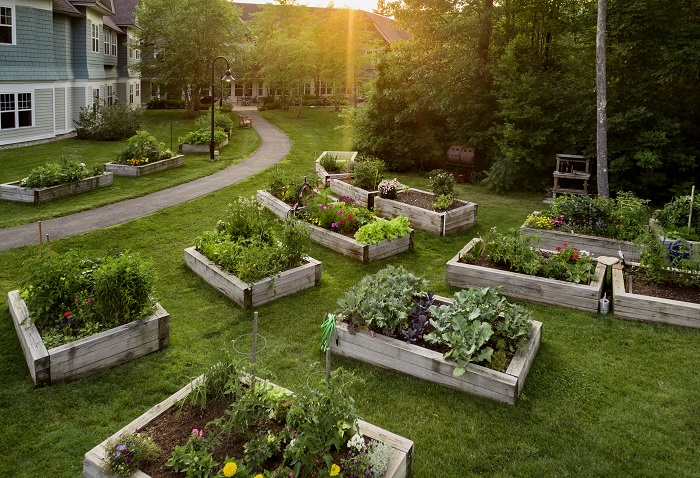
Innovation in Environmental Sustainability
RiverWoods Exeter, Exeter, NH, was founded by a group of its original residents in the 1980s, and has always worked to be “an active community of interested adults who cared about each other and the world around them.”
Today the 200-plus-acre RiverWoods campus is home to 3 separate “neighborhoods” that are home to 605 residents in independent living, assisted living, and skilled nursing. The founding ethic of “adults who cared about each other and the world around them” is reflected in the organization’s commitment to environmental sustainability—which goes hand-in-hand with a strong wellness orientation among and for residents.
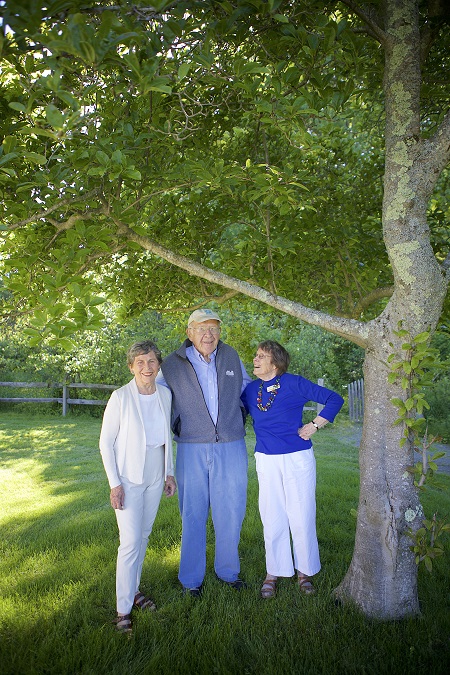
Level I accreditation from ArbNet, and is on the way to
reaching Level II.
The RiverWoods Exeter Arboretum
Many of the sustainability efforts center around the heavily wooded campus. The 165-acre RiverWoods Exeter Arboretum was started 15 years ago when a small group of residents began planting a wide variety of trees. Today it includes at least 226 species of trees and has achieved Level I Arboretum Accreditation from ArbNet, a consortium of arboreta and tree-focused public gardens throughout the world. (It is on the way to reaching Level II accreditation.)
“We worked with the Morton Arboretum, just outside of Chicago,” says Landscape Manager Dan Burbank. “Staff work very closely with the residents to enhance the landscape, and it gives people the opportunity to enjoy the grounds and have a learning experience.”
Volunteer resident docents guide visitors through the arboretum on several miles of resident-maintained trails, and it is a multigenerational teaching tool, attracting local elementary school students and horticulture students.
Burbank says there are only about 70 tree species native to New Hampshire, but the arboretum now includes trees from almost every continent.
The mission of the arboretum is “to create an environmentally diverse, sustainable landscape that fosters an appreciation for the natural world through education, inspiration and research.”
According to Executive Director Deb Riddell, the investment required to maintain the arboretum is not excessive, because of the resident involvement.
“We do so much resident-staff partnership, it just becomes part of who we are,” Riddell says. “There was a lot of paperwork that needed to be done when we were getting the arboretum certified. What I love about it is that we’re able to use it and the trail system for community impact, and not just [for] our residents and staff. Our neighbors use our trail system; they look at our trees and are educated as a result of that. We become better community members.”
Organic Landscaping Practices
Inspired by a “healthy lawns, clean waters” presentation, the environmental services team re-thought its practices 3 years ago.
“We became committed to making changes in how we maintain our landscaping,” says Burbank. “There are so many dangerous chemicals used in the landscape industry, specifically glyphosate. We saw there would be a great benefit to our residents and staff and we banned [glyphosate] on our campus after that. We took a hard look at everything we do and took the plunge.”
The organization is now certified as the only organic landscaper in New Hampshire by the Northeast Organic Farming Association.
A Greenhouse and Hydroponic Vegetables
Another horticultural effort was the construction of a small experimental greenhouse to test hydroponic gardening. A horticultural intern from the University of New Hampshire had a lot of input from the design, and she has since graduated and become a full-time employee.
“We experimented with hydroponics, with annuals and perennials, to see if we could do it, and to see if there was interest in the community, from either staff or residents, to really pursue it further,” says Burbank.
The small greenhouse has been removed and plans are now underway to build a larger one.
“Residents and staff can learn about the growing process of plants in a controlled environment. We have potential to have residents from the health center coming and working in the soil, regardless of what their mobility may be,” Burbank adds.
Animal Life
RiverWoods Business School is a program run for employees by a group of residents who are experienced business leaders and/or retired professors. It offers 5 courses: critical thinking, written communication, finance, oral communication, and a “capstone course.” One capstone project team suggested more additions to the campus.
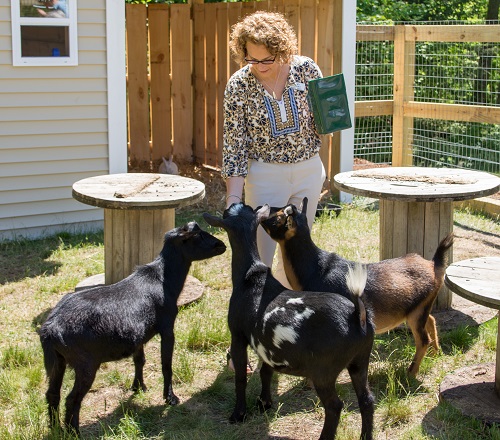
Plato, triplet pygmy goats. The goats—along with bees—were
adopted thanks to a project conceived through the RiverWoods
Exeter Business School.
“Two years ago, one of the teams wanted to enhance our agricultural position,” says Riddell. “They came up with the idea of having bees, goats, and chickens on the campus, and presented it to the senior leadership team. We liked it and they worked on how to make this [happen]. We were easily able to get the bees. A couple of residents are master beekeepers, and they partnered with a couple of folks on that team who were interested in beekeeping. We sent 5 staff members to get certified as beekeepers. We bought our first set of bees, and they have been taking care of those for a year now.”
Riddell says that the bees won’t produce enough honey for harvest for another year, but they provide valuable pollination on the campus. Another set of hives will soon be purchased, along with a new queen, to replace one who recently died.
Three pygmy goats—Eros, Plato, and Achilles—who needed a new home have been adopted as well. The goats, popular with residents and visitors, help to clear dense undergrowth and nuisance plants, all while fertilizing the area around them. Leash-trained, they will also work as therapy animals for skilled nursing residents. Employees have built them a pen with solar panels to keep water warm in the winter.
Riddell says the chickens are still to come.
Bike Sharing
RiverWoods’ bike sharing program puts bikes at strategically located sites throughout the campus, for resident and staff use, to cut down on shuttle and car trips.
Heidi Savage, fitness manager at RiverWoods, says that residents were in the habit of giving her their bikes when they stopped using them.
“They would turn them into me, and we would find homes for them,” Savage says. “Eventually we thought it would be a good idea to have bikes on campus that residents and staff could use. We went with step-through bikes, simple to use and easy to ride.”
RiverWoods provides helmets, and the bikes can also be used on trips with the community’s outdoor adventure program.
Sustainability and Local Food
Sustainability is a value in the kitchen as well as the outdoors.
“I’m a trained chef. I like knowing where my food comes from,” says Kathy King, senior director of culinary operations. Her goal is to bring in more local and sustainable food for residents.
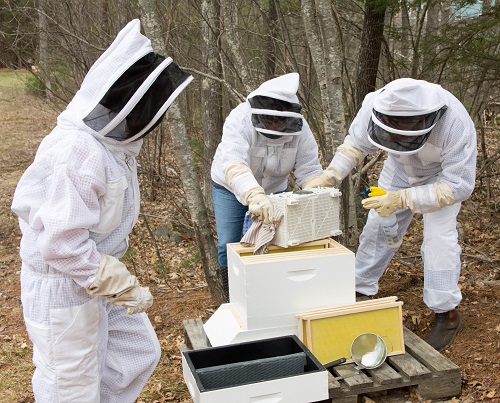
RiverWoods in the fall of 2018. A couple of master beekeepers
among the residents shared their expertise.
“We know how many people we’ll be serving every day,” says King, “So we’re trying to create some standing orders with local farms before the season starts, so they’ll know what to plant.”
King and her staff are working with the Three Rivers Alliance, a group of 28 vendors and farmers in the area organized to distribute their products.
King also works with an organization called Health Care Without Harm, which works with health providers around sustainability, and has built links with area hospitals to learn more about what local vendors they use.
Some food waste is composted on the campus, along with landscaping waste, with the goal of producing enough to not only top-dress the lawns, but also for residents to enhance the harvest in their raised-bed gardens.
King says, “Food composting is hard, and we produce a lot, with 600 residents to feed, never mind the staff. Dan can’t [compost] the bones and meat products, so we use a local service for that.”
Partnership and Commitment
Riddell says that all of these efforts are the result of a shared vision by residents and staff: “Sustainability and environmental well-being is important to us, and [is part of] how we partner for fitness and wellness. Everything we’ve talked about has a wellness component to it for residents. These partnerships are all for the greater good within our community, but also the community we live in.”
If you’d like to recommend an organization or an individual to be recognized, fill out the nomination form with details about why your nominee deserves recognition. The form will require you to log in to your My.LeadingAge account. If you don’t have one already, creating one is easy.
Gene Mitchell is editor of LeadingAge magazine. Please direct your questions about the LeadingAge Catalysts program to him at gmitchell@leadingage.org or 202-508-9424.
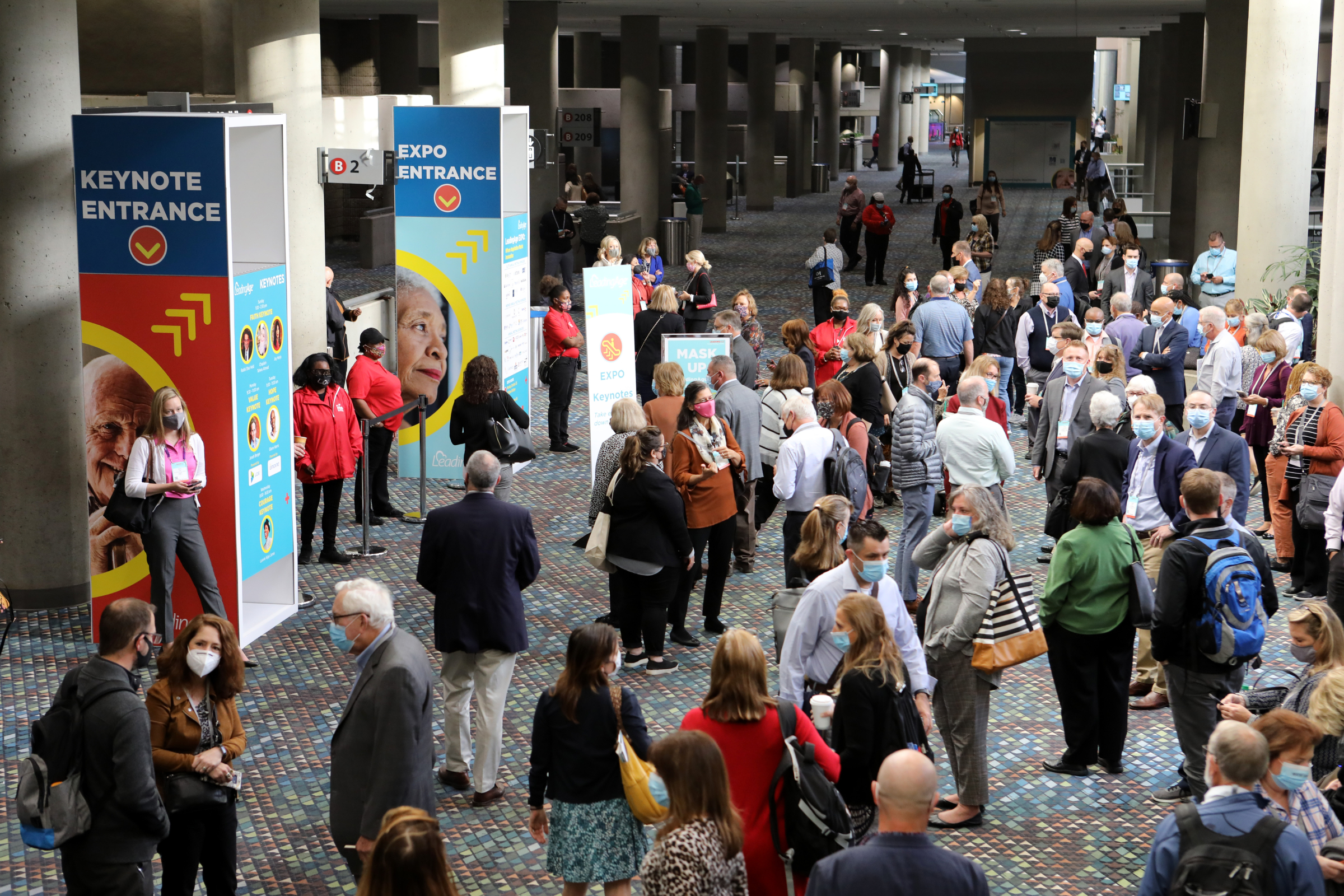
Most Recommended
October 15, 2025
 Shutdown Week Three: Impact of Ongoing Closure on Affordable Housing
Shutdown Week Three: Impact of Ongoing Closure on Affordable Housing
February 24, 2026
Fiscal Year (FY) Funding 2026
October 07, 2025
Immigrant Workforce Matching Program Brings Workforce Relief
Recently Added
March 05, 2026
VA’s Dole Act Implementation Lags
March 04, 2026
CAST Case Study: Modernizing Care with AI
March 04, 2026
